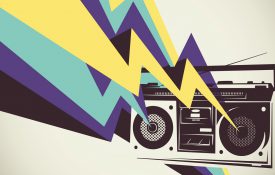-
Do People Need Small Talk to Be Happy?
The Atlantic: Security guard, truck driver, salesperson—year after year, these jobs appear on lists of the unhappiest careers. Although many factors can make a job dismal—unusual hours, low pay, no chance for advancement—these three gigs stand out for another reason: They’re characterized either by a lack of conversation or by obligatory but meaningless small talk. Psychologists have long said that connecting with others is central to well-being, but just how much conversation we require is under investigation. In one study, researchers eavesdropped on undergraduates for four days, then cataloged each overheard conversation as either “small talk” (“What do you have there? Popcorn?
-
People Prefer Hiring “Naturals” Over Hardworking “Strivers”
When deciding which candidate to hire or what company to invest in, do we favor someone who has a history of hard work and perseverance or the hotshot with a natural talent? Findings from three studies conducted by University College London professor Chia-Jung Tsay suggest that when assessing people with equivalent levels of achievement and success, we’re predisposed to judge someone who’s a “natural” as more talented, more hirable, and more likely to succeed than someone who’s a “striver.” “[T]here exists the belief that certain achievements cannot be explained solely by perseverance and hard work—that natural talent plays a role, and some ‘have it’ and others ‘do not,’” Tsay writes.
-
Can technology help predict who will attempt suicide?
PBS: Tens of millions of Americans struggle with mental illnesses, and knowing who, among these individuals, is at risk for suicide is one of the biggest challenges psychologists and psychiatrists face. ... But now, researchers are developing technological innovations to go far beyond talk therapy and more accurately diagnose imminent suicide risk. “Traditionally, if someone was suicidal out in the world, we would wait for them to come into our office or into our lab and tell us they’re suicidal and we’d ask them about what their experience was like,” suicide researcher Dr. Matthew Nock said.
-
Can Teenage Defiance Be Manipulated for Good?
The New York Times: Since there have been teenagers, there have been adults trying to control them. The Massachusetts Bay Colony passed the Stubborn Child Law in 1646, allowing parents to have their defiant teenage sons put to death. The Bible suggests stoning them to death. But what if adolescent defiance is not a demon to be exorcised, but a power to be harnessed? The brains of adolescents are notoriously more receptive to short-term rewards and peer approval, which can lead to risky behavior. But researchers and educators are noticing that young people are also more sensitive to notions of social justice and autonomy.
-

The Right Music Can Bring Teams Together
A team researchers finds evidence that what we’re listening to at work might influence how willing we are to cooperate with coworkers.
-
Your voice may be your biggest asset at your next job interview
Business Insider: The latest research has found your voice could be your biggest asset when you go for a job interview. ... "In addition to communicating the contents of one's mind, like specific thoughts and beliefs, a person's speech conveys their fundamental capacity to think — the capacity for reasoning, thoughtfulness and intellect," says Professor Nicholas Epley of the University of Chicago Booth School of Business. The study, "The Sound of Intellect: Speech Reveals a Thoughtful Mind, Increasing a Job Candidate's Appeal," is published in The Journal of Psychological Science. Read the whole story: Business Insider

